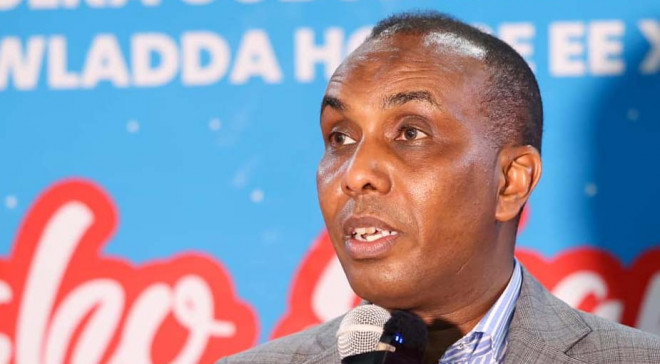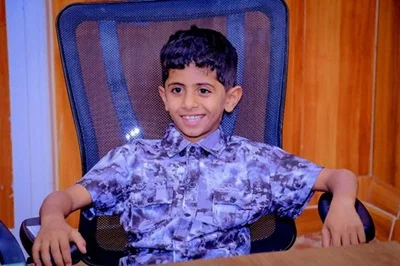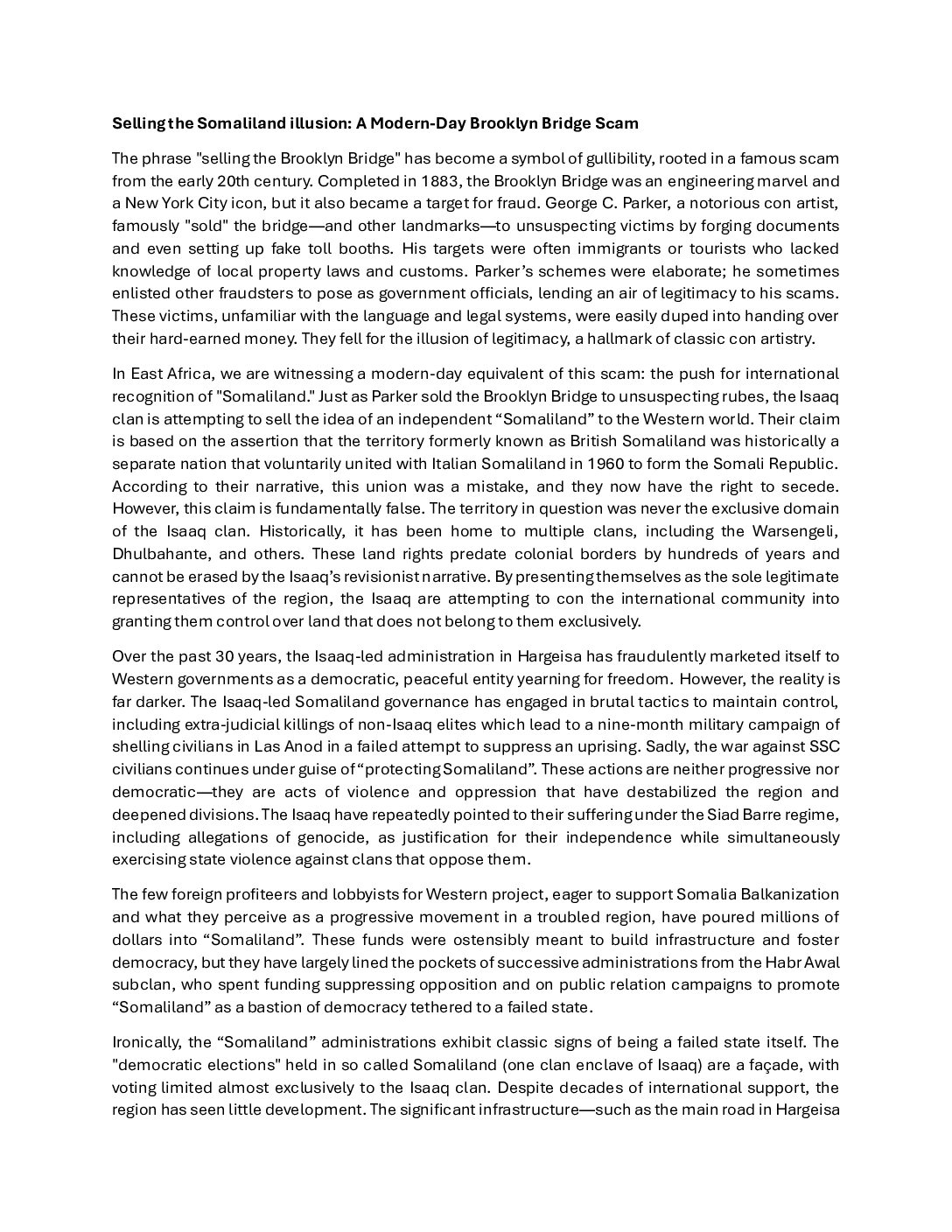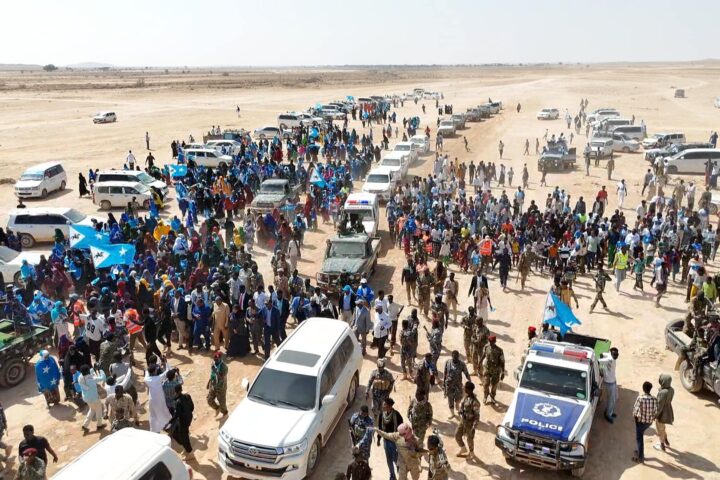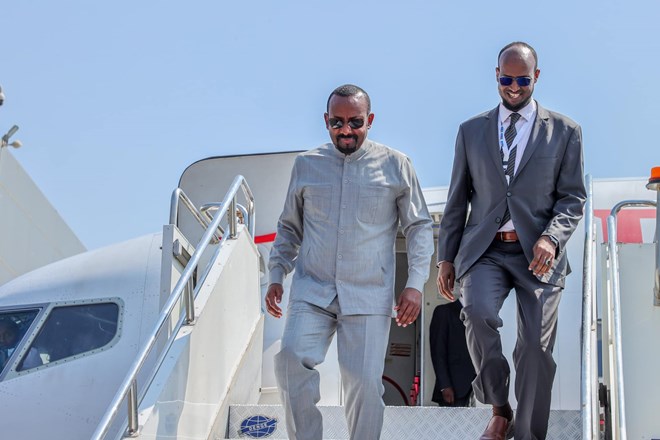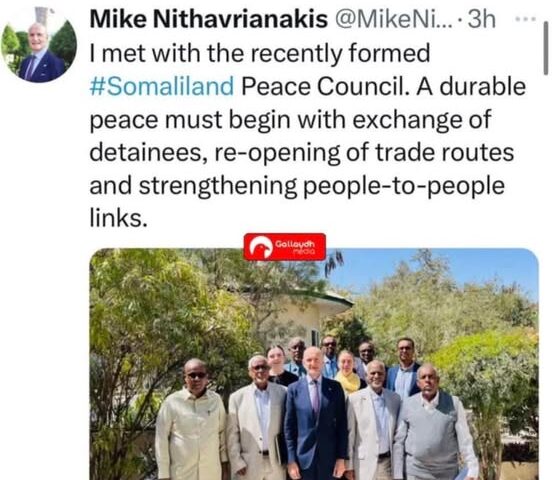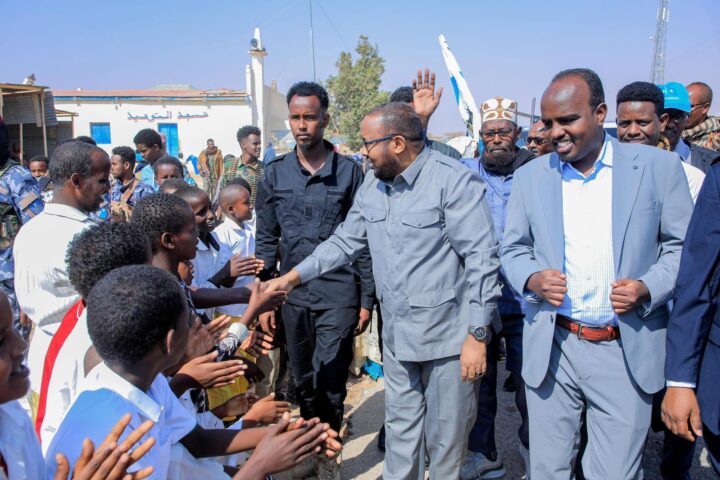“…Somaliland has been implicated in supporting terrorism, particularly through its association with Al Shabaab. Notably, several founders and leaders of Al-Shabaab have originated from Somaliland and belong to the Isaaq clan. Ahmed Abdi Godane, also known as Mukhtar Abu Zubair, hailed from the Arap subclan of the Isaaq and served as the Emir of Al-Shabaab until his death in 2014. Similarly, Ibrahim Haji Jama Mee’aad, known as Ibrahim al-Afghani, was from the Habr Awal subclan of the Isaaq and held a senior position within Al Shabaab before his death in 2013.
Despite Al-Shabaab’s widespread terrorist activities across Somalia, the Isaaq-dominated region of Somaliland has been conspicuously spared from attacks for more than two decades since the group’s formation. This glaring exemptionsuggests a deliberate arrangement rather than mere coincidence. Reports indicate that Somaliland actively supports Al-Shabaab operations in south-central Somalia while backing ISIS elements in the Galgala mountains of the northeastern Sanaag region. Additionally, key leaders of Al-Shabaab have family members residing in
Burco and Hargeisa, further reinforcing Somaliland’s deep-rooted connections to terrorist networks.
Somaliland’s link to global extremist movements is further evidenced by the case of Hussein Faysal Ali Warabe, the son of Faysal Ali Warabe, leader of the Justice and Welfare Party (UCID) and a Finnish citizen. In 2013, Hussein traveled to Syria, where he fought alongside ISIS under the alias Abu Shuaib As-Somali. He was ultimately killed in an airstrike on December 29, 2017. Somaliland’s role as a safe haven for violent extremists and its facilitation of terrorist activities in Somalia underscore its calculated strategy to destabilize the region for its own political gain.
Adding further insight into Somaliland’s terrorist connections, Boqor Osman Aw
Mohamoud, more commonly known as Buurmadow, is an outspoken Isaaq clan
elder and an active presence in traditional and social media, where he advocates for Isaaq clan interests. In 2021, while attending a public Dir clan event in Mogadishu, he openly stated, “…there are two governments in Somalia. One is the Federal Government of Somalia, and the other is our government of Al-Shabaab, headed by leaders of my Isaaq subclan, which is part of the larger Dir clan.” This statement, made by a respected traditional leader, further solidifies the undeniable connection between Somaliland and terrorist organizations.
Furthermore, Somaliland’s connections to international terrorism extend beyond regional extremist networks. Individuals from Somaliland have been detained and subsequently released from the U.S. Guantanamo Bay detention facility. For instance, Mohamed Suleiman Barre, born in Burao, Somaliland, was held at
Guantanamo Bay before his release in December 2009. Similarly, Ismael Arale, another individual from Somaliland, was transferred to Guantanamo in 2007 and in 2009. These cases highlight Somaliland’s concerning involvement in global terrorist activities.
Compounding this alarming reality, Somaliland’s outgoing intelligence director recently admitted that foreign terrorist fighters enter Somalia through various coastal areas in Somaliland before dispersing to other regions. This revelation underscores Somaliland’s role as a conduit for terrorism. Ironically, Somaliland separatists, in their pursuit of international recognition, frequently question their association with Somalia by citing its struggles with terrorism—while conveniently ignoring their own active role in fostering terrorism to destabilize the country.
In summary, Somaliland’s unwavering support for terrorism is evident through its historical and ongoing collaboration with Al-Shabaab and other extremist groups.”
Dr. Abdirahman Mohamed Hashi

